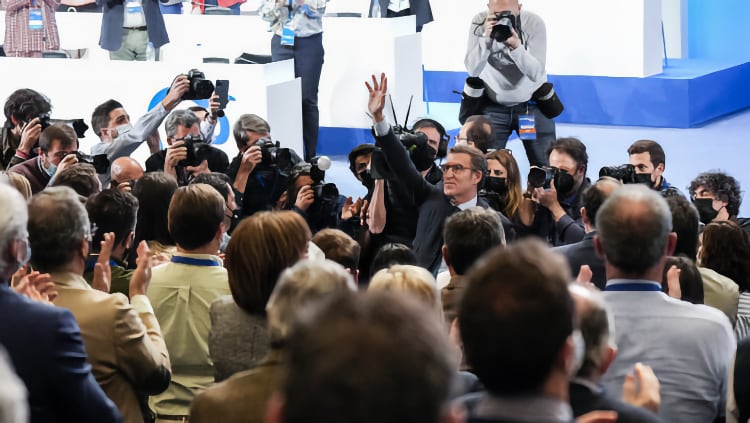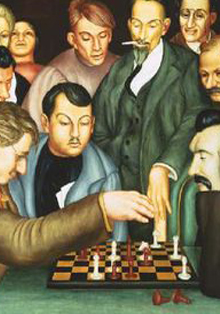Ángel Collado
The People’s Party emerges from its 20th National Congress as if Pablo Casado’s mandate had been an inconsequential parenthesis in its history and with a successor in the presidency, Alberto Núñez Feijóo, determined to propose relations to the Government to seek bipartisan agreements and turn around its economic policy in the face of the crisis.
The PP is reformulating itself with a new leader and the same forms of the Mariano Rajoy era to offer itself as an alternative to an Executive, that of Pedro Sánchez, very comfortable with the extreme left (Podemos) inside his cabinet and the extreme right (Vox) outside, as a reference point for an unviable opposition.
Feijóo’s offer to Sánchez is not based on the naivety of the newcomer to the post of PP president and without a seat in Congress to be able to fully comply as head of the opposition. The still president of the Xunta de Galicia is aware that the head of the Executive has avoided during the almost four years he has been in power the pacts of State with the PP and major economic reforms.
Sánchez has done the opposite since June 2018: taking care of his podemite, communist and pro-independence partners and allies who brought him to power and cultivating public spending plus tax hikes with disregard for the deficit and the accumulated public debt, up to 121% of the Public Domestic Product. Pablo Casado was not invited to seek any agreement, only to validate closed decrees or legislative projects in difficulty due to some defection among his usual supporters.
When the Executive was on the ropes, as in the vote for Sánchez to control directly from La Moncloa the distribution of direct aid from the European Union (70,000 million euros), Vox came to its aid. And when the mini-labour reform was on the verge of sinking in Congress last February, it was an absent-minded PP member of parliament who, with his voting error, prevented the decree from falling.
The head of the Executive has not wanted any pact with the PP, not even in foreign policy, only when it comes to renewing constitutional bodies and the party quota system, which is what interests him to impose his Frankenstein majority (PSOE plus all the left-wing and separatist groups) in judicial bodies, institutional control or arbitration. With the Constitutional Court saved, Sánchez’s great obsession has been to proceed with the renewal of the General Council of the Judiciary in order to control the governing body of judges. Casado has had it blocked for three years with an indigestible counter-offer for the socialist leader: to reinforce the independence of the CGPJ with more members elected directly by the judges.
Feijóo knows of Sánchez’s urgency with the CGPJ, that he did not even bother to explain or inform the PP as the governing party of the turnaround to support Mohamed VI’s plans in the former Spanish Sahara. But the economic consequences of the invasion of Ukraine have once again exposed the ideological closed-mindedness and/or lack of ideas of the ruling social-communist coalition to deal with the economic crisis with inflation soaring to almost 10 percent.
Contrary to the practice of the rest of the European governments and even before Putin’s war, Sánchez rejected the practice of lowering taxes to stimulate growth and employment. And he remains entrenched in his spending policy and is committed to the deficit, despite the fact that he is now starting to talk about an “income pact” to conceal the fact that cuts are coming.
The new PP leadership believes that the real test for the government is the threat of economic recession, which will force Sánchez to seek support beyond his extreme left-wing partners. That is why Feijóo is going ahead to offer state pacts for the general interest that allow him to put himself in a position of tutelage over the government. He offers the PP’s proven experience in overcoming economic crises (those of 1996 and 2011) as opposed to the government’s paralysis in this area with the patching up and chained bungling, such as the petrol subsidy.
The PP president’s commitment to state agreements is complicated because it would mean breaking up the coalition in government and both sectors of the government have shown that they can get along badly in public, but coexist without major problems. The communists disagree, but they will not leave the Cabinet, while Sánchez cannot kick them out either because he would be left in a minority in Congress. Feijóo aspires rather to make this misrule evident and to present himself as an alternative to it.






